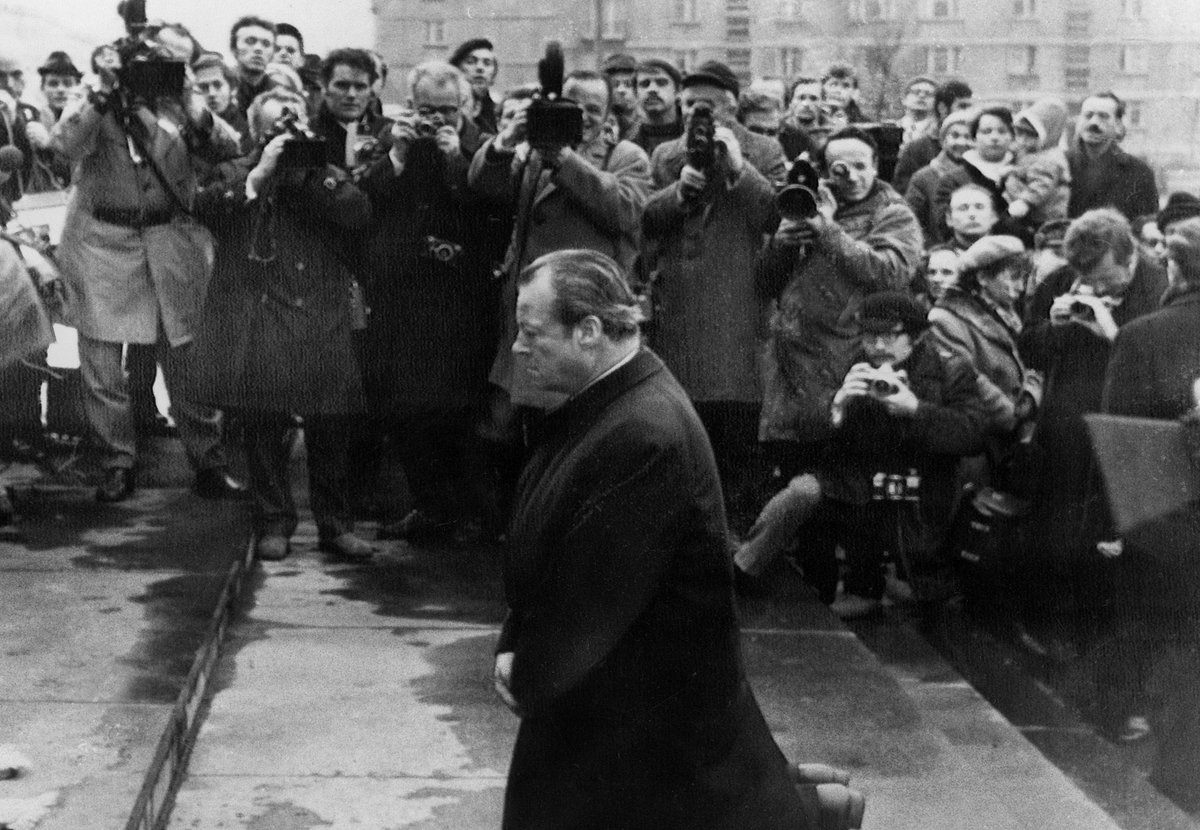
#Germany’s moral authority is currently under extreme duress (to put it mildly).
The role of 🇩🇪 identity & history in its response to #Ukraine has come up again & again.
I have a new piece out that deals with both of these issues (& more)
-A 🧵

The role of 🇩🇪 identity & history in its response to #Ukraine has come up again & again.
I have a new piece out that deals with both of these issues (& more)
-A 🧵


The article looks at the thoroughly *international* politics of Germany’s postwar period, from 1945 to the present by looking at the electronic music pioneers Kraftwerk, their mission, context, reception & influence
journals.sagepub.com/doi/full/10.11…
journals.sagepub.com/doi/full/10.11…
Kraftwerk are today widely recognised as one of the most influential band’s in music history – but also as being illustrative of & key actors in a moves to create a new and better German identity after the war.
There was a surge in interest in Kraftwerk and in ‘Krautrock’ music & the wider cultural renaissance in West Germany in the 70s– including many great books and films that I highly recommend
As well as the wildly innovative & wonderful music, most of the books & films tended to focus on the band’s significance in relation to “a Very German problem: the problem of national identity after the Nazi era” (as Uwe Schütte) put it 

Indeed, Kraftwerk are often seen as a “typically German band: distanced, cold, perfectionist & highly effective” (Dallach) & even David #Bowie had a strange fascination with these ‘Teutonic’ musicians and their ‘very German music’
BUT, for musicologists, there’s no such thing as ‘German’ music & while many authors focus on Kraftwerk’s ‘German-ness’, others show how thoroughly cosmopolitan they were 

Some, like Stubbs, see this as a paradox–but for me it shows an unexplored inter-national dimension of their work (& how we understand German national identity). That’s what I explore in the article using a new theory of IR: Multiplicity (but that's for another thread). 
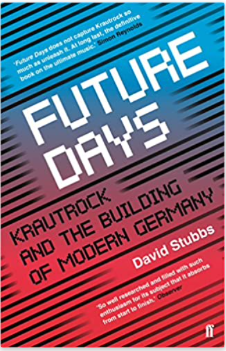
This piece engages with debates in IR on the national & the international
– but I think that most people will be interested in the new angle on Kraftwerk & postwar #Germany’s history & identity – the joy’s (of course) in the detail but here’s a taste …
– but I think that most people will be interested in the new angle on Kraftwerk & postwar #Germany’s history & identity – the joy’s (of course) in the detail but here’s a taste …
Starting at Zero-Hour (Stunde Null) I look at the ‘terms’ of #Germany’s postwar co-existence with other societies after WW2 (esp. the occupying powers, the US & UK) & how these were related to ‘informal’ cultural factors 
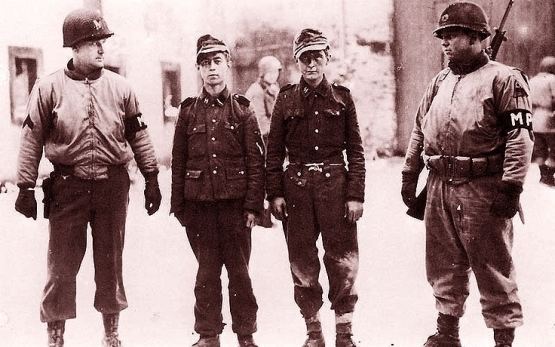
Irmin Schmidt from Kraftwerk’s contemporaries, Can laid it on the line:
“It wasn’t just the towns that were in ruins, it was the culture [. . .] minds were in ruins.” So, many people sought solace in a cosy culture of forgetting like
“It wasn’t just the towns that were in ruins, it was the culture [. . .] minds were in ruins.” So, many people sought solace in a cosy culture of forgetting like
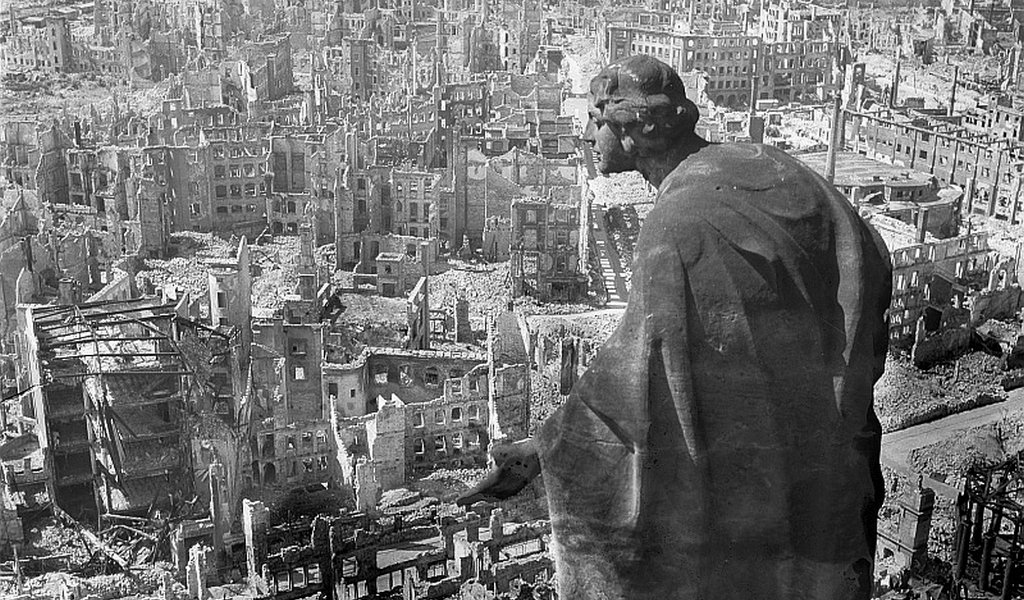
the dreadful ‘Schlager’ music, which looked and sounded like
& had some distinctly dodgy connotations.
Like this … hmm, where is that Schwarz-Braun (Black-Brown) colour combo so familiar from …
Like this … hmm, where is that Schwarz-Braun (Black-Brown) colour combo so familiar from …
Of course, many young Germans rebelled against this – often through cultural rejection of all things German. American & British bands were hugely popular (think of the Beatles in Hamburg)
But this rejection, via adopting the culture of the occupying powers, meant that #Germany’s cultural and moral recovery still lagged behind its economic recovery (the wirtshaftswunder) & political integration into e.g. NATO & the ECSC 
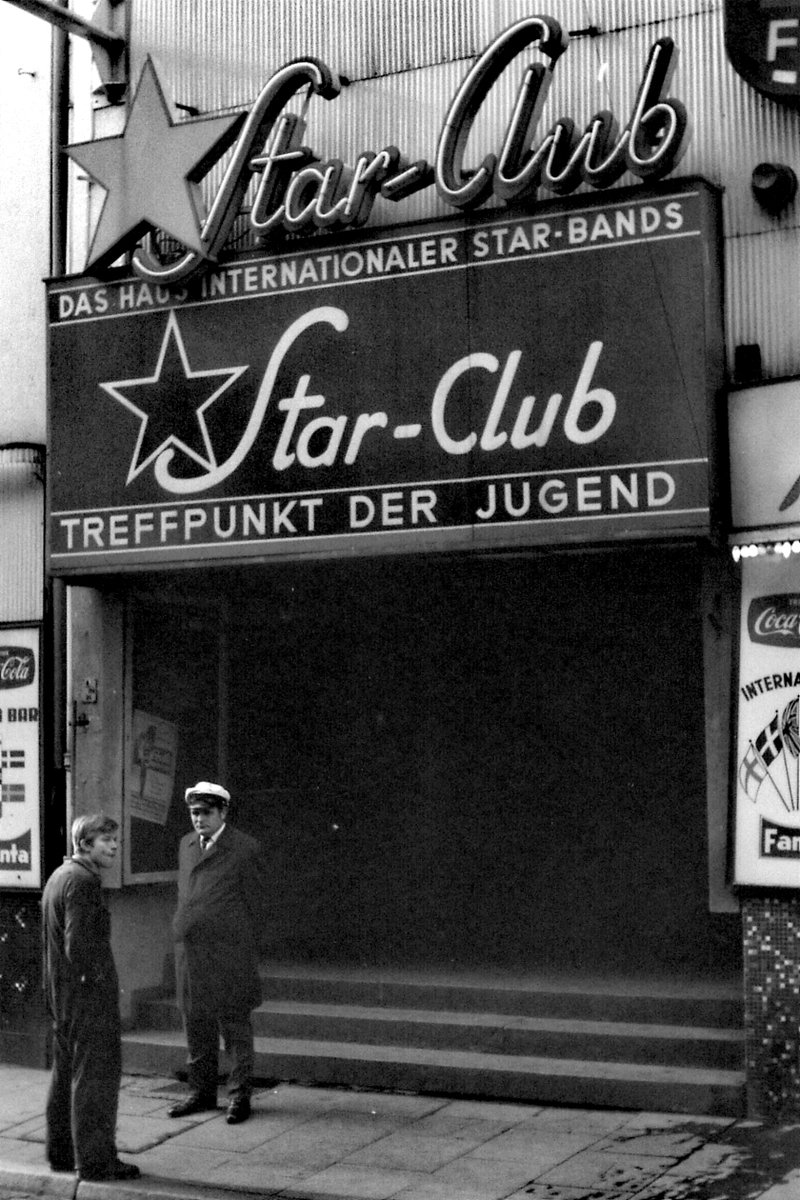
As Ralf Hutter of Kraftwerk put it – “we woke up in the late 60s & realised #Germany had become an American colony. There was no German identity, no German music, nothing.”
Karl Bartos agreed: “You have to create your own art[. . .]We weren’t raised in the Mississippi delta [or] Liverpool [that’s] not our identity. It’s one thing playing music you like … but coming up with your own idea & defining your culture is another.”
Lurking beneath the dissatisfaction with both the German music of forgetting & the music of the occupying powers was a discontent with the terms of #Germany’s co-existence: formal political equality was undermined by informal moral-cultural hierarchy
So Kraftwerk set out change the terms of #Germany’s co-existence, to both look the past in the eye and create a new music, a new cultural identity for Germany. This meant asking what could be ‘German’ after Auschwitz.
The banded needed to distance themselves from both US & UK pop & rock. Unlike many of their peers, they took a German name & gave their songs German titles & lyrics. Their content – the modern life of the BRD – was very different than Schlager.
They sang about roads (Autobahn) & railways (Trans-Europe Express) but, musically they also differentiated themselves by fusing classically influenced compositions (Beethoven, Schubert) with a Bauhaus attitude & cutting-edge instruments
This made a music that sounded like nothing before it, but could also be recognised by Germans (and others) as sounding ‘German’. And that recognition (from without and within) was key (& why they deliberately made pop not 'high-culture' art like e.g. Stockhausen)
The band also pushed their audience to reckon with the Nazi past & its legacies in the BRD: e.g. the double-edged subject matter of Autobahn (die Straßen des Führers) & Trans-Europe Express (railways & holocaust) the colours on Man-Machine & Goebbels-era radio set on Radioctivity 



This was also a cosmopolitan German identity with international sources: modernists (Pierre Schaefer, El Lissitzky), pop, punk & funk stars (The Beach Boys, The Ramones, James Brown, Bootsy Collins) artists (Warhol, Gilbert & George)
Fun, Fun, Fun ... Fahr'n Fahr'n Fahr'n
Fun, Fun, Fun ... Fahr'n Fahr'n Fahr'n
But it was still German – as they emphasised to anglophone journalists – playing up to stereotypes of superiority, only to be mocked & derided as ‘the final solution to the music problem’ or ‘what your fathers fought to save you from’ (NME) 

BUT this too changed over time, as many international musicians came were captivated by Kraftwerk’s music and unique performance style, which challenged the ‘cock rock’ standards of the time & offered a different version of stardom 

Stubbs argues that although they were “as white and male as they come, Kraftwerk were anti-white and anti-male in ways that mattered” (Schutte notes their influence on e.g. Drexciya, Underground Resistance & Ladytron
Via David Bowie, Brian Eno, Conny Plank, Daniel Miller, Rusty Egan & even the BBC’s Tommorow’s World (a popular science programme) they inspired & influenced artists from New Order, OMD, Human League & Depeche Mode
(esp min4-7)
(esp min4-7)
To Afrika Bambaata & the Soul Sonic Force (who extensively sampled Kraftwerk) on the ground breaking Electro-Funk hit Planet Rock ( coming out of the NY DJ scene & seen as precursor to Hip Hop)
And Detroit Techno Pioneers Juan Atkins, Rik Davies Kevin Saunderson and Derrick May – most famously sampling the same two songs as Bambaata (but to very different effect) on ‘Clear’, the first techno record
The transformation in Kraftwerk’s image and reception in e.g. the UK, was crowned when The Model charted at no1. In 1982, four years after failing to reach the top 40 when it was first released in 1978
Kraftwerk & the postpunks that they influenced also helped inspire German musicians in the 80s – e.g. DAF, Malaria, Einsturzende Neubauten & even Nena – mixed English & German names & lyrics, but made music very much of their own.
These artists & others who followed them made bold new music, reflective of the emerging #Germany – critically mindful of its past & internationally respected for this, but also newly confident in asserting itself in the present.
Having been the emblematic place of Cold War division, Germany & esp. its once & future capital, Berlin, came to epitomise the renewed liberal hope & unity of the post–Cold war era. The fall of the #BerlinWall saw a flourishing of
Electronic music & liberal culture (Love Parade, St Christophers Day parade, Tresor, Berghain, etc …). Germany had come a long way from Schlager & the ealy FRG’s oppressive Christian conservatism & culture of forgetting
The 21st Century saw Germany’s memory culture revered & its society held up as an example to others – ‘Europe’s indispensable nation’ - by both @fromTGA & @JochenBittner
nytimes.com/2020/03/17/opi…
theguardian.com/commentisfree/…
nytimes.com/2020/03/17/opi…
theguardian.com/commentisfree/…
& even, the most admired country in the world …
theguardian.com/world/2020/jul…
theguardian.com/world/2020/jul…
And that’s the hard won reputation & moral capital that is now in the process of being destroyed. We can now more clearly see the flaws in #Germany’s socio-corporate political culture that lay under that shiny façade … but … 

Even last year, when I finished this piece (Ah, academic publishing) … I noted that Kraftwerk had not made new material in a long time. As David Buckley wrote, they have become a ‘heritage’ band, ‘a tribute act to themselves’ 

Kraftwerk, while still impressive, are a far cry from the innovative creative force that helped forge a new identity for #Germany, which [is] in a similar position: a leading liberal society at a time when the liberal international order is under severe duress & needs change
and so “simply continuing to play the same old tune is unlikely to suffice for long.”
And so it proved – even if the problem was worse than many of us thought – even those of us who WERE listening to CEE.
And so it proved – even if the problem was worse than many of us thought – even those of us who WERE listening to CEE.
Now, #Germany needs to reinvent again – it needs to salvage the good from its past & jettison the bad in order to atone for its mistakes. It needs a forward looking vision that offers a new & credible future
- time for a new Kraftwerk. /END
- time for a new Kraftwerk. /END
PS1 – I’ve tried to bring an academic article to life here – there are *many* shortcuts. If you’re interested, please read the piece – I’ll happily send you a copy. I’ve been told that for an academic work, its readable, even enjoyable.
PS2 – Yup, this is long, but its culture, history & international politics together so there’s a lot to cover and I hope you like it – its still a lot shorter than the article!
Thread & article of interest to @kraftwerk
@elonmusk likes #Kraftwerk, right? and as an investor in #Germany would have an interest in this I reckon ...
• • •
Missing some Tweet in this thread? You can try to
force a refresh




